How Thorncliffe Park's community garden is teaching kids about nature while tackling food insecurity
Kindergarteners and parents attend programming together
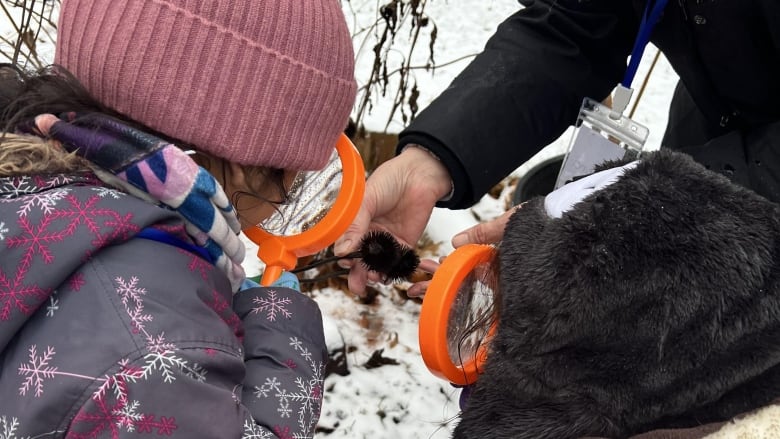
Tucked away behind the 50-year-old high-rise apartments on Thorncliffe Park Drive sits a community garden and thatslice of greenery has caught the attention of staff at Fraser Mustard Early Learning Academy.
The nearby kindergarten-only school launched a program last year to team up with Thorncliffe Park Urban Farmers, a local farming group that runs the garden, to bring little ones and their parents to guided sessions where they can learn about everything from growing carrots to understanding the local ecosystem, says Barbara Sandler, the principal at the school.
Now in itssecond year, Sandler says the program is evolving to build stronger relationships between parents, kids and community organizations in Thorncliffe Park.
"We hope that all of the students at Fraser Mustard ... are seeing themselves as capable of contributing," she said. "We're really making important and long-lasting connections to the natural world."
Parents and community organizers told CBC Toronto that the program is particularly important in a neighbourhood like Thorncliffe Park, whichhas multiple high-rise buildings and a lack of space for recreation. It hasalso created an alternative food source, with some in Torontoturning tourban farmingas an option in the midst ofthe affordability crisis.
Over the last four years, about 680 kilogramsof organic produce have been given to residents for free, says Michelle Delaney, who founded the urban farmers group a decade ago.
She said the garden is a "communal garden" as opposed to a "community garden," which can come with membership fees and waiting lists. "I want to be able to break down those access barriers, make the gardens free," she said.
Increasing access to outdoor spaces
Khadija Hansa and her daughter, who attends kindergarten at Fraser Mustard, are part of a cohort of parents and students whoare involved in gardening sessions this month.
"This is our second time coming to the community garden. It's a wonderful experience for my child to learn skills, gardening skills, because since we do live in an apartment building, we don't really have access to our own outdoor space," she said.
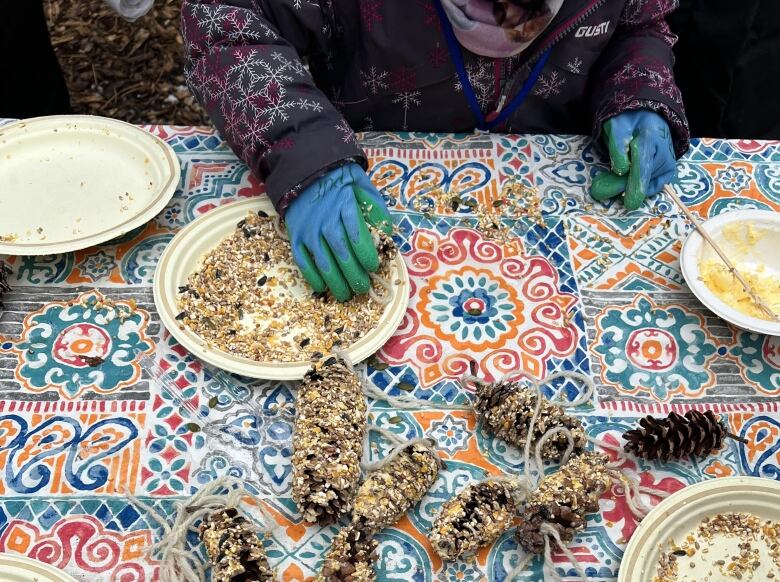
Her daughter says she's most excited to plant kiwis that she can eat at school.
"I really love how they have included parents we get to bond with each other as well," Hansasaid.
It's also the first year they've broughtparents into the program, says organizerShona Farley.
CBC Toronto is spending time in the Thorncliffe Park neighbourhoodas part of our Communities in Focus initiative. Our goal is to hear your stories about this unique neighbourhood and share them with the rest of the city.
To stay up to date and engage with our latest stories about Thorncliffe and Flemingdon Park,subscribe to our Thorncliffe Park WhatsApp Channel.
"Having the parents as part of the program really has helped facilitate communication so by word of mouth, more and more children are becoming involved," she said.
Najib Siddiqui, a Flemingdon Park resident, has been working with Thorncliffe Park Urban Farmers for four years.He said his work primarily focuses on creating a habitat for pollinators in the garden, and keeping track of native bees, butterflies and moths that are drawn in by the plants.
The expansion of the garden has also helped bring back plants and species that have been lost to the development in the neighbourhood over the decades, he said. Thorncliffe Park sits near greenery along the Don River.
"There's so much loss of habitat, everything is paved," he said. "To me that's even more important to whatever little space we can get, like this space."
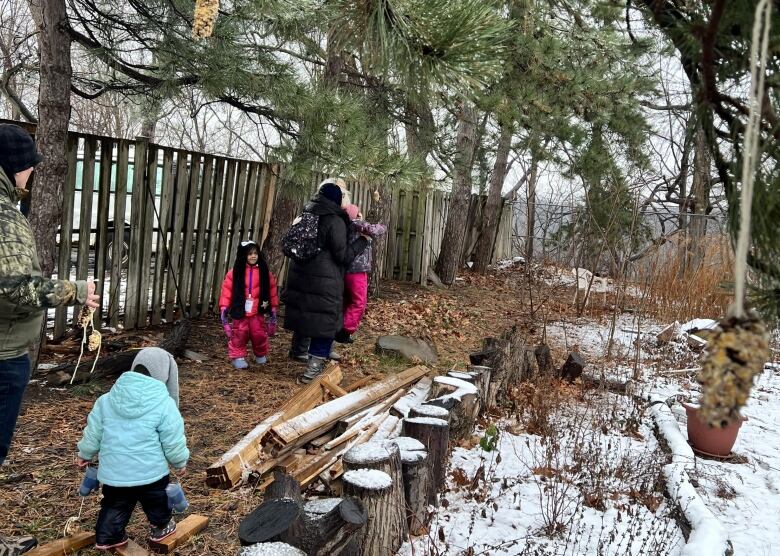
According to the city of Toronto's neighbourhood profile of Thorncliffe Park, the area's population density is 6,787 people per square kilometre, which is about one-and-a-half times Toronto's average of 4,457 per square kilometre.
"All of these are rental apartment buildings, so nobody owns their own backyards," Siddiquisaid.
The lack of green space inthe communitypromptedDelaney to found Thorncliffe Park Urban Farmers a decade ago.
"I was a stay-at-home mom and I was really getting into living an eco-friendly lifestyle. I was thinking about growing my own food, and I discovered that there wasn't a lot of opportunity here," she said.
Looking out her window in her high-rise, she saw a fairly large green space behind 53 Thorncliffe Park Driveshe thought could be used. The landlord for the property supported it and they've received other donations through charity United Way.
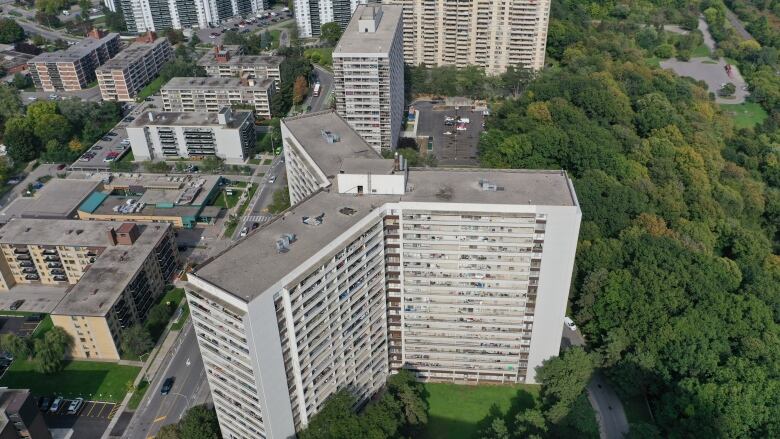
Thorncliffe Park is designated as a priority for the city due to inequalities people face there. That's why ensuring the program is free is important, she said.
Responses from residents have been positive, which is why they are continuing to expand their programming with Fraser Mustard, she said. "It's also run by our community, so it's important because it empowers us in a way to take some of our issues and do something better for ourselves."
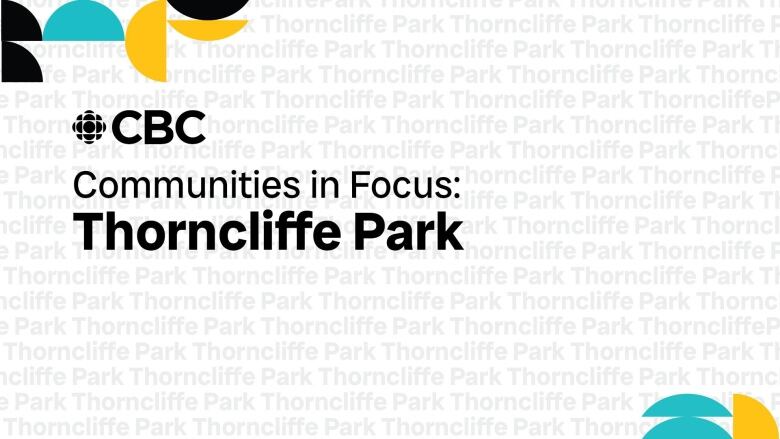












_(720p).jpg)


 OFFICIAL HD MUSIC VIDEO.jpg)
.jpg)



























































































